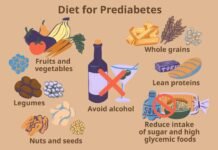Trying to shift towards a plant-based diet isn’t quite as simple as it sounds. Despite the advocacy towards this form of diet, processed and animal food have become the most common types in the stores. However, there is still a possibility to follow a plant-based diet if you understand the basics discussed in this article. But first, let’s understand this type of food.
Thank you for reading this post, don't forget to subscribe!
What Is a Plant-Based Diet?
When you are on a plant-based diet, you only consume foods that come from plants, including vegetables, seeds, legumes, whole grains, fruits, and nuts. In this case, you avoid foods with animal products such as dairy, meat, and eggs.
Benefits Of Plant-Based Diet
Following a balanced plant-based diet offers numerous benefits, including:
1. Lower Risks of Heart Diseases and Conditions
A recent study showed that people who followed a balanced plant-based diet with minimal animal products had a lower risk of heart complications. Besides, the American Heart Association report that avoiding animal products, especially meat, reduces the risk of high cholesterol, hypertension, and stroke.
2. Weight Management
Studies on obesity suggest a low body mass index among people who primarily eat plant-based diets. The same people report lower rates of heart disease and obesity than those eating meat regularly.
The complex high fiber, carbohydrate, and water content in a plant-based diet increases your energy use when you are resting making you feel fuller for longer.
3. Diabetes Prevention and Treatment
Plant-based diets reduce insulin resistance and improve insulin sensitivity. Therefore, consuming plant-based food regularly may lower your risk of type 2 diabetes. A study comparing plant-based dieters and nonvegetarians recorded 2% and 8% diabetes prevalence, respectively.
How To Get Enough Nutrients from Plant-Based Diets
Failure to plan your plant-based diet could lead to nutritional deficiency. Therefore, you need to meet all your vitamin, protein, and mineral needs to feel and look your best. Below are easy ways to ensure you get the essential nutrients
Protein
The nutrient is critical for body functions, including strong bones, healthy skin, and muscle mass. The plant-based foods packed with this nutrient include quinoa, nuts, soy products, and beans.
Vitamins and Minerals
Your body needs vitamins and minerals like calcium to ensure healthy bones and organs. You acquire most vitamins and calcium through consuming green leafy lettuce, mushrooms, almond, and soy.
Omega-3 Fatty Acids
These nutrients are crucial in reducing inflammation and heart related complications. The two essential forms, namely eicosapentaenoic acid (EPA) and docosahexaenoic acid (DHA), are rare in plants. Plant-based foods such as flaxseed and walnuts only provide the alpha-linolenic acid (ALA) nutrient whose conversion to EPA and DHA in our body is slow and inefficient. In this case, you may need to consider supplements to avoid inflammation, brain fog, and memory difficulties.
A plant-based diet provides most of the critical nutrients that your body needs for healthy functionality and disease resilience. This article highlights crucial considerations for you before you get started on a plant-based diet. While studies suggest the efficiency of these diets against health complications, it is your physician who should have the final say on what best works for you.

.jpg)







